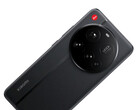Unisoc has quietly launched the T9300 5G SoC as the successor to last year’s T8300. The 6 nm chip uses an octa-core design built around a Cortex-A78 performance core running at up to 2.4 GHz, supported by Cortex-A55 efficiency cores. Unisoc claims a 38% gain in energy efficiency compared to the previous generation. The T9300 supposedly reaches about 550,000 points on AnTuTu V10, a small increase over the T8300’s typical score of around 515,000. The chip includes a dual-core Mali-G57 GPU and supports LPDDR4X memory, as well as UFS 2.2 storage.
For displays, the chip supports FHD+ resolutions at 144 Hz or 1.5K resolutions at 90 Hz. It also handles HDR10+ content. The platform includes several display technologies, such as VideoPQ for dynamic video contrast adjustment, VRR dynamic refresh rate, and various eye protection modes for blue light, sunlight, and night viewing. Support for HiFi-level audio quality and the Unisoc Miracle Gaming mobile game engine is also included.
One of the biggest updates over the T8300 is in the imaging capabilities. The T9300 comes with the 7th generation Vivimagic image engine and a new quad-core ISP which allows the chip to support 200-megapixel main cameras or dual 20+20 megapixel setups. The system features improved noise reduction using hardware-based multi-frame noise reduction (MFNR) and temporal noise reduction (TNR) to produce clearer images. Unisoc's new 3A algorithm 5.0 promises better face brightness, more accurate focusing, and improved dynamic range. For low-light situations, a new multi-frame, multi-exposure Raw domain super night scene XDR algorithm is available, alongside refined AI portrait segmentation.
On the connectivity front, the T9300 offers multi-mode support from 2G to 5G networks, including SA and NSA dual-mode 5G, 100 MHz communication bandwidth, and dual-SIM dual-VoNR. Power consumption in typical 5G scenarios has been optimized by over 20% compared to the previous generation, claims the chipmaker. The most notable addition is the integration of NR NTN satellite communication, adhering to the 3GPP R17 standard. This allows T9300-powered devices to connect directly to satellites for communication without a traditional cellular signal. The chip is also ready for the most up-to-date software, with support for the latest Android 16.














